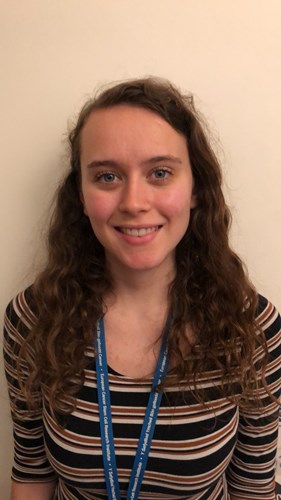With support from staff at Tenovus Cancer Care Emily searched through publicly available information to find patterns between smoking rates, lung cancer incidence and survival. Not only did Emily find that deprivation levels increase likelihood of developing lung cancer, but that it also impacts of the types of treatment people receive and their likelihood of survival.
Lung cancer screening is likely to be soon introduced to Wales and could have a massive effect on lung cancer mortality. Emily’s research has highlighted to us some of the barriers to taking up screening services that we need to be aware of when considering the implementation of targeted lung health checks in more deprived areas.
We’ve been really fortunate that Emily was able to use her research skills to produce this really interesting piece of work, and the insight she has gained as helped us to develop some recommendations and messaging to help close the inequalities gap in lung cancer.
“Working with Tenovus has been a fantastic experience. It was really interesting to work in a different area surrounding cancer, outside of the lab. I felt well supported throughout my project and enjoyed seeing the project through to completion and I am really happy the end product is proving useful. I feel that through my project I developed my skills in research outside of academia and other useful skills such as project management and collaborative working, and I am returning to my PhD with a renewed passion and enthusiasm to be working in an area of research surrounding cancer.”
You can read Emily’s full report here.
At Tenovus Cancer Care we are always happy to work with researchers with similar aims to ourselves, and we hope that other students might consider a placement with us in the future.
This student placement was supported by Emily Heath’ s BBSRC SWBio PhD Studentship

